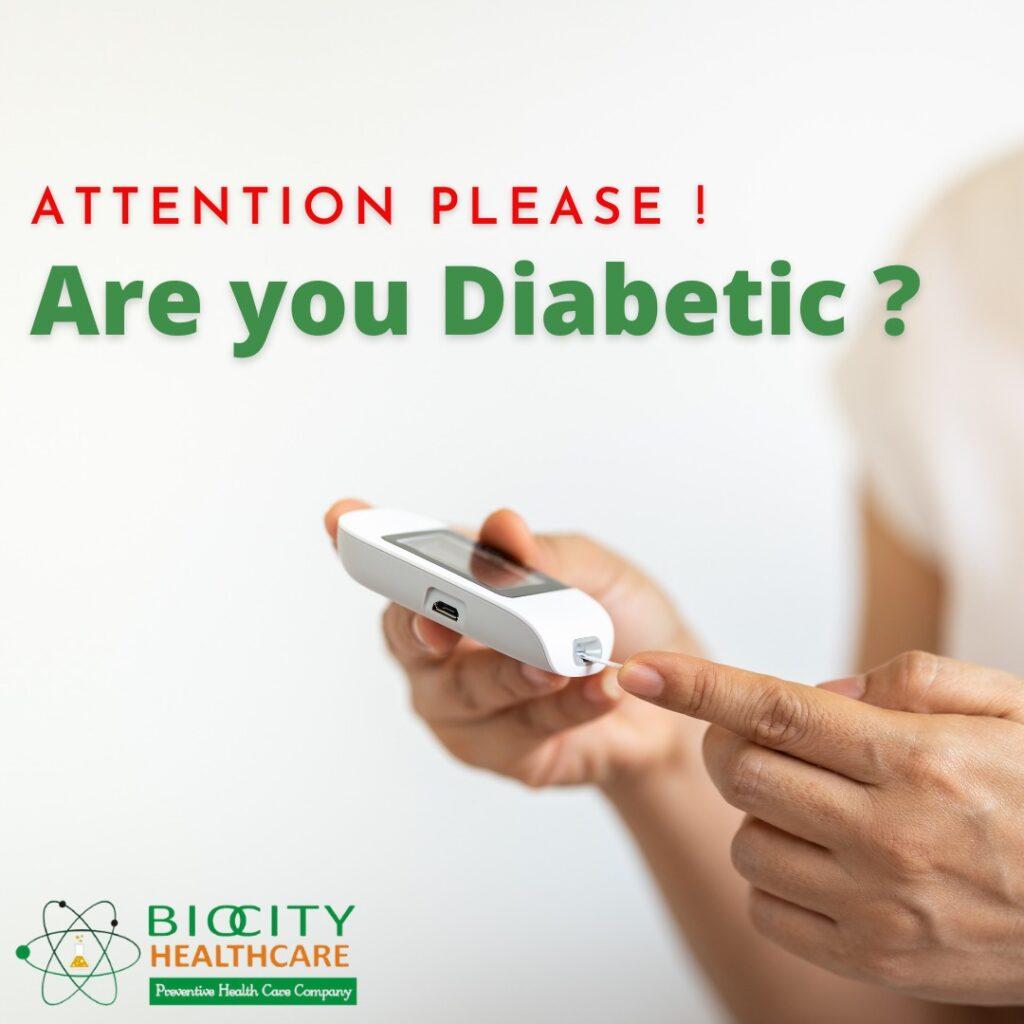Covid-19 is at its peak yet again. All over the world people are advised to take extra precautions, especially those with comorbidities. As per the data and research available, people with diabetes are at greater risk. Read on to find out why.
Attention Diabetes Patients!
If you have diabetes and are not yet vaccinated, make sure you take the jab as soon as possible. People with diabetes are more prone to get severely ill when exposed to Covid-19. This is because the virus appears to progress faster in diabetes patients. It affects people with both type one and type two diabetes equally.
What Makes People with Diabetes Vulnerable?
A person with diabetes doesn’t just have fluctuating glucose levels. They may also have certain underlying complications that are perhaps regulated with medications. So when a diabetic person develops a viral infection, the treatment becomes much harder.
This is what happens when someone with diabetes gets infected with Covid-19, which is a relatively new disease. Not enough is known about it and there isn’t a lot of clarity on what sort of complications may occur during the treatment.
A weak immune system is another factor. As the patient’s immune system is already affected with diabetes, the post-Covid recovery period is also longer. A diabetic patient’s physical ability to fight off the virus is thus relatively low.
Increased blood glucose levels could also play a role in making diabetic patients more vulnerable. To quote the International Diabetes Federation, the virus may thrive in an environment of elevated blood glucose. In this case, the virus could get the right conditions to grow and spread which leads to a fatal infection.
Who is at a Greater Risk?
As per the Centers for Disease Control and Prevention (CDC), people with diabetes have a 7.5% risk of death due to a Covid-related condition. There is now enough evidence to suggest that Covid-19 is a bigger threat to those with type two diabetes. Let’s first try to understand what differentiates type one from type two diabetes.
Type two diabetes is more common and lifestyle based but type one diabetes is genetic. The onset of type one diabetes usually takes place at a younger age. Therefore those with type one diabetes are more likely to fight off the virus better since they have much better immunity.
So what does it mean for those with type two diabetes? It is absolutely crucial for them to keep their blood sugars regulated. Having better control over diabetes will help your immune system fight off the virus.
If you have other comorbidities along with diabetes, such as a heart disease, you are more likely to develop serious complications due to Covid-19. This is because viral infections tend to cause inflammation or internal swelling. According to the American Diabetes Association (ADA), this is a red flag. Above-target blood sugar and inflammation contribute in creating further Covid-related complications.
Diabetic Ketoacidosis (DKA) in Type 1 Diabetes:
A study published in The Lancet Journal revealed that some diabetic patients developed Diabetic Ketoacidosis (DKA)-related complications during or post-Covid.
People with type one diabetes face an increased risk of DKA especially when exposed to a viral infection. This makes it difficult to manage the fluid intake and keep electrolyte levels balanced. Intake of fluids is important to manage sepsis and septic shock, which has been causing serious complications among diabetics.
Sepsis can trigger fatal inflammation in the body. If it worsens it may cause organ failure and can also be life threatening. Learn to identify signs of DKA to avoid sepsis. Some of the signs are below:
– Excessive thirst
– Frequent urination
– Nausea and vomiting
– Weakness or fatigue
– Shortness of breath
– Fruity-scented breath
– Confusion
(Source: Mayo Clinic)
Diabetes, Covid-19 & Age
Several studies are still underway to fully understand the impact of Covid-19. However, early reports indicate that there could be a link between the deadly virus and its effects on diabetic patients across various age groups.
According to one such study, people between the ages of 65 to 74 are three times more likely to die due to Covid-19. The death rate is also relatively higher if the patient happens to be a male.
Women with gestational diabetes are also believed to be extremely vulnerable to Covid-19. The condition is specific to pregnant women which could also put the unborn/newborn baby at risk.
Can My Insulin Shot React with the Vaccine?
At present, there is no conclusive evidence to suggest that vaccines and insulin shots get in each other’s way. If you’re suffering from diabetes, both medicines are important for your wellbeing.
To stay safe in the pandemic, keep your blood sugar levels in check and get vaccinated. People with comorbidities are now also eligible for booster shots.
Can Diabetes be a Side-Effect of Covid-19?
According to Dr. Charu Dutt Arora of Asian Hospital, there’s a spike in the cases of diabetes among children, post-Covid. A study noted a 2.6% rise in the number of diabetic children who had recently recovered from Covid-19. Whether this condition is temporary or chronic is still unknown. One must look out for signs such as nausea, vomiting, increased thirst etc. to detect early signs for diabetes among children.
How does Covid-19 cause diabetes? While it is too soon to spell out a conclusive reason, there may be several factors at play here. The virus attacks our internal system including the pancreatic cells. The cells then stop producing sufficient insulin which leads to further stress. Some physical activity could help in keeping the body healthy but pandemic restrictions have made life even more sedentary.
In a nutshell, it is possible that Covid-19 could in fact be yet another cause of diabetes.
Diabetes & Black Fungus
On January 19, 2022, a 70-year-old Covid-19 patient in Mumbai developed Mucormycosis. Commonly known as black fungus, India reported several cases of this fungal infection during the Delta wave.
According to a Times of India report, this was caused due to uncontrolled diabetes. “The patient was brought to the hospital with general fatigue and his blood sugar was 532,” Wockhardt Hospital’s Dr. Honey Savla, told the TOI. During the last wave, excessive use of steroids was blamed for black fungus. This time high blood sugar seems to be the cause.
Even though there isn’t any significant research on the subject yet, doctors advise exercising caution. ENT specialists and general physicians suggest monitoring blood sugar levels after Covid-19 recovery even if you don’t have a history of diabetes.
T.Shanker, Superintendent at the Government ENT Hospital in Hyderabad pointed out a worrying fact to The Hindu. He said that many patients found out they had diabetes only after they were screened for Mucormycosis. Their condition reportedly deteriorated because they weren’t monitoring their blood sugar due to lack of awareness.
Unsure if You Have Diabetes?
There are some common symptoms that you must look out for. If you’re suddenly losing weight, feeling fatigued or notice an increase in your thirst and appetite, it’s time to be alert. In case these symptoms are accompanied with frequent urination and blurry vision, immediately see a doctor. To leave no room for doubts, you can also book a test.
How to Boost Your Immunity?
If you’re suffering from diabetes, it is necessary to be more cautious. Since diabetes has a direct impact on your immune system, make sure you’re following a diet that improves your immunity. A nutrient-rich diet packed with fresh vegetables, greens, citrus fruits and whole grains is highly recommended.
It is also important that you eat in frequent intervals and keep monitoring your blood sugar levels. In case you test positive for Covid-19, do not panic.
Inform your doctor, stock up on your medications and stay hydrated. The infection may cause a fluctuation in your blood sugar levels. Keep drinking enough fluids throughout the day.
Even though it is easier said than done, avoid stress. Medically speaking, stress causes our body to release a hormone called cortisol which affects our glucose levels. You wouldn’t want to invite unnecessary triggers while dealing with Covid-19.
I Have Diabetes & Have Also Tested Covid Positive
Patients with diabetes who have mild symptoms of Covid-19, home quarantining and social distancing is recommended. In case there’s a need for hospitalization, Dr. Janaki Vakharia who practices at the Massachusetts General Hospital recommends carrying your own supplies. This will reduce your exposure from the hospital staff. Here’s a quick checklist:
– Glucometer or continuous glucose monitor with supplies
– Extra supplies for your insulin pump
– Insulin needles/pens
Stay Safe, Stay Protected
If you have diabetes, following a healthy diet, staying hydrated, keeping stress away and exercising regularly is a must. This becomes even more important with the risk of Covid-19 involved.
Besides these, you must keep in touch with your doctor, monitor your blood sugar levels and report any fluctuations at the earliest. Biocity Healthcare offers multiple packages that will help you understand your body comprehensively and detect any underlying issues.
You can know more about them here.



